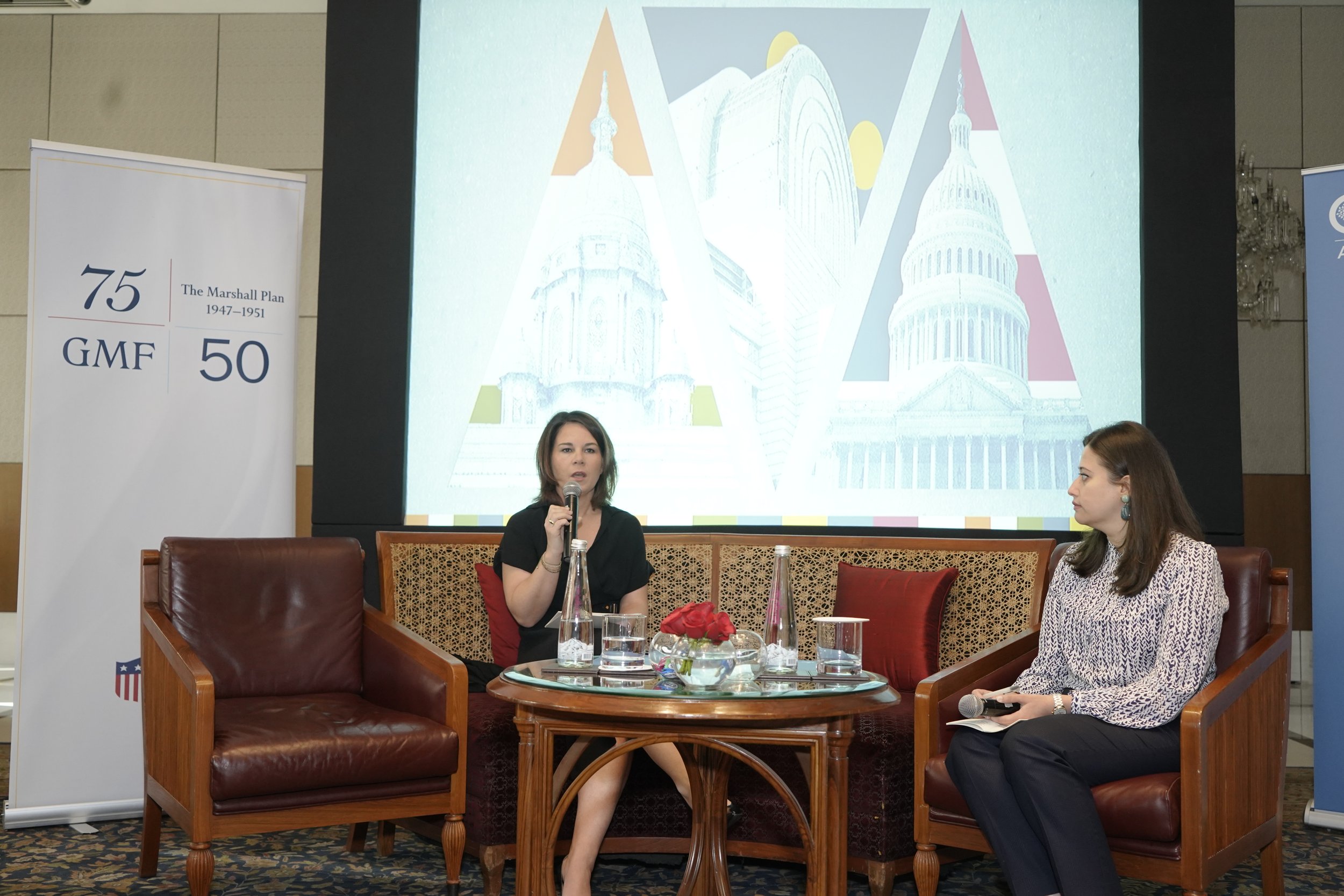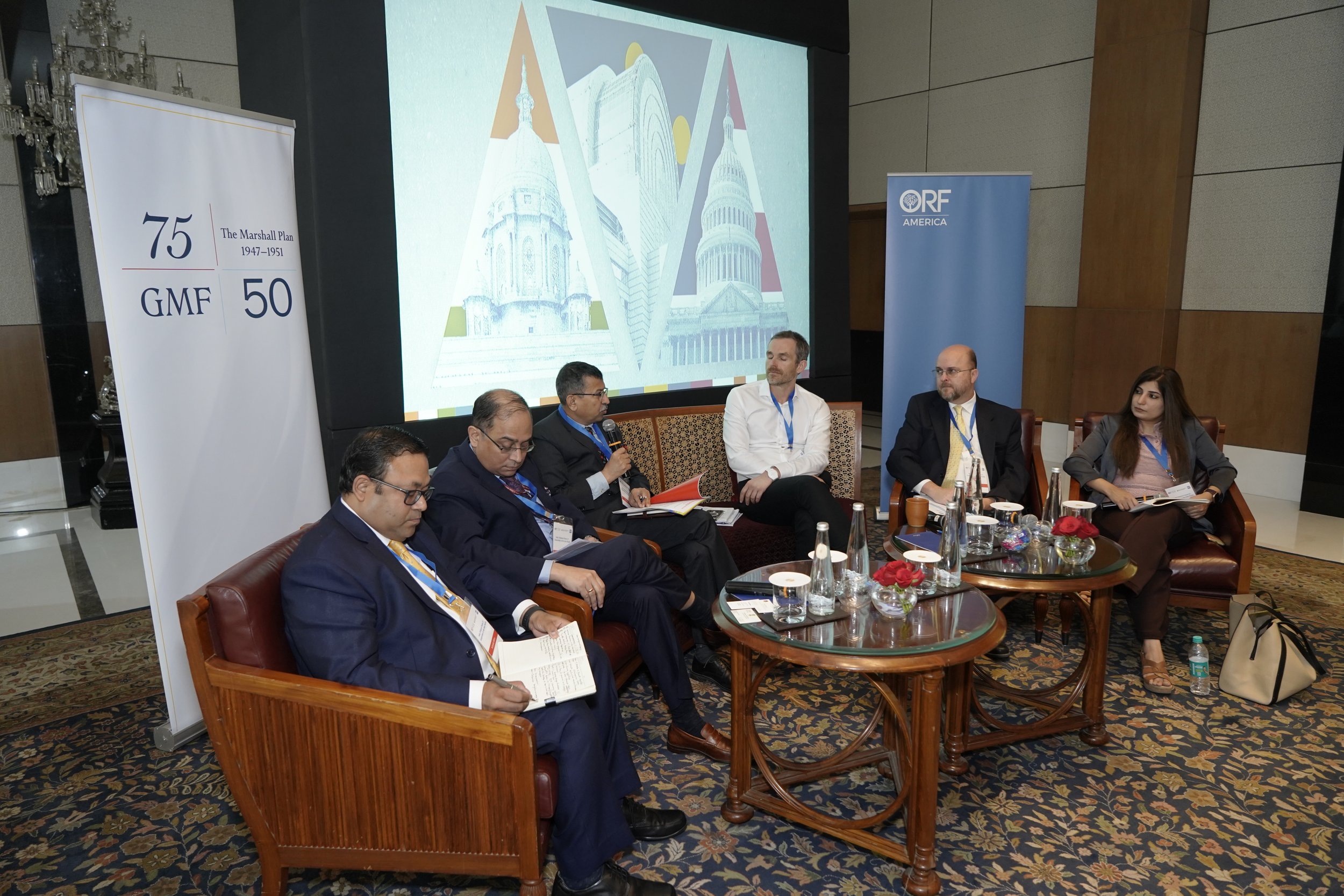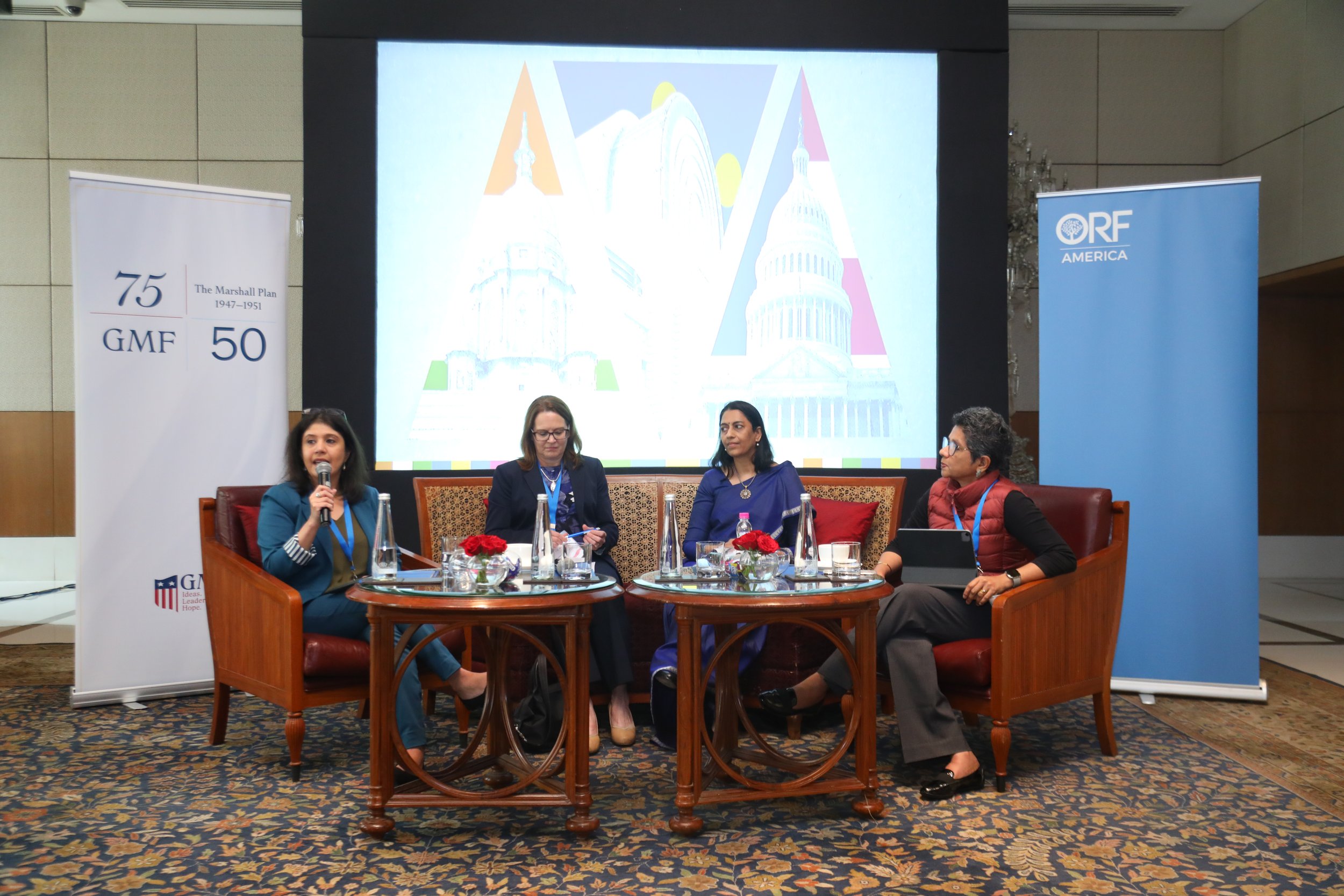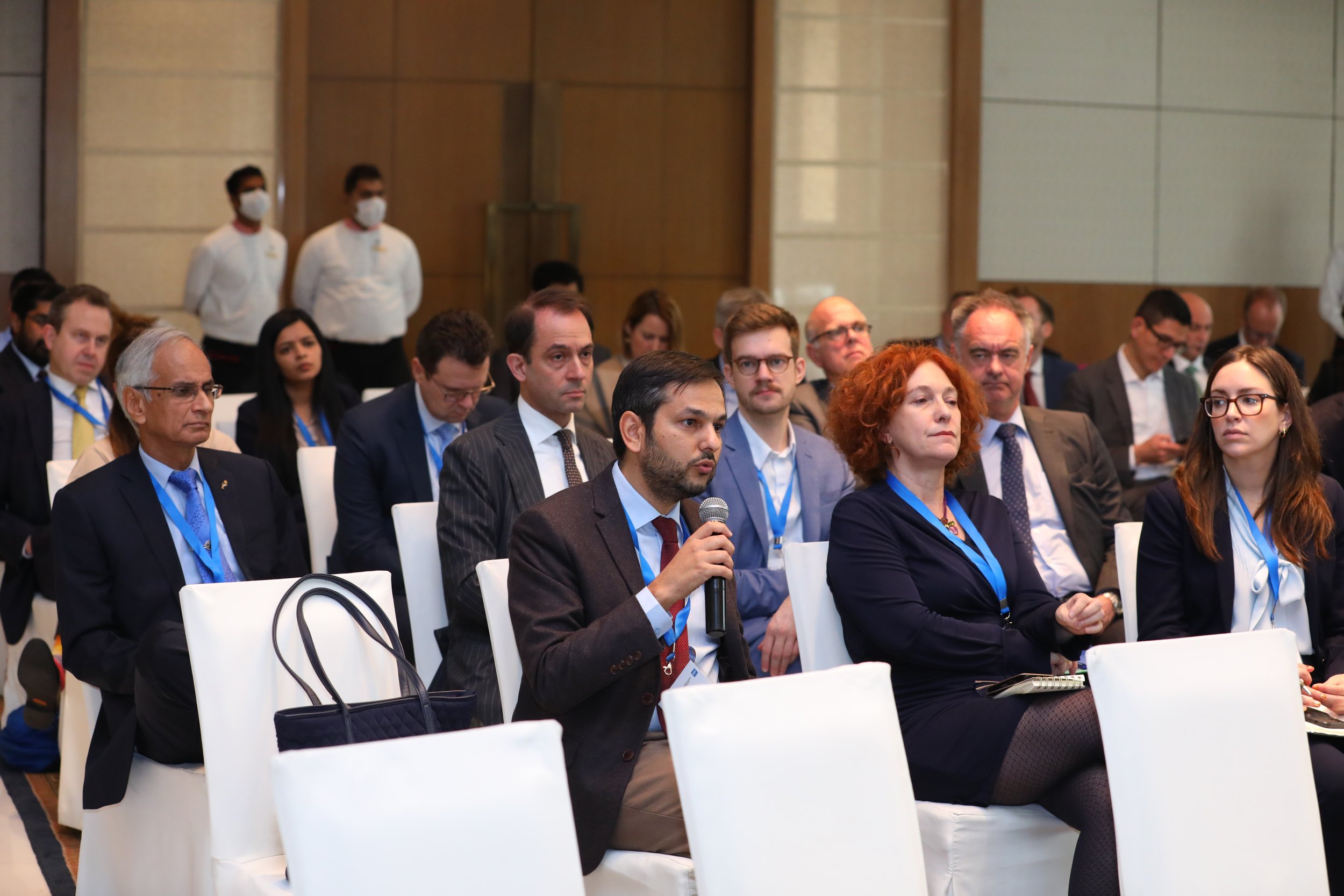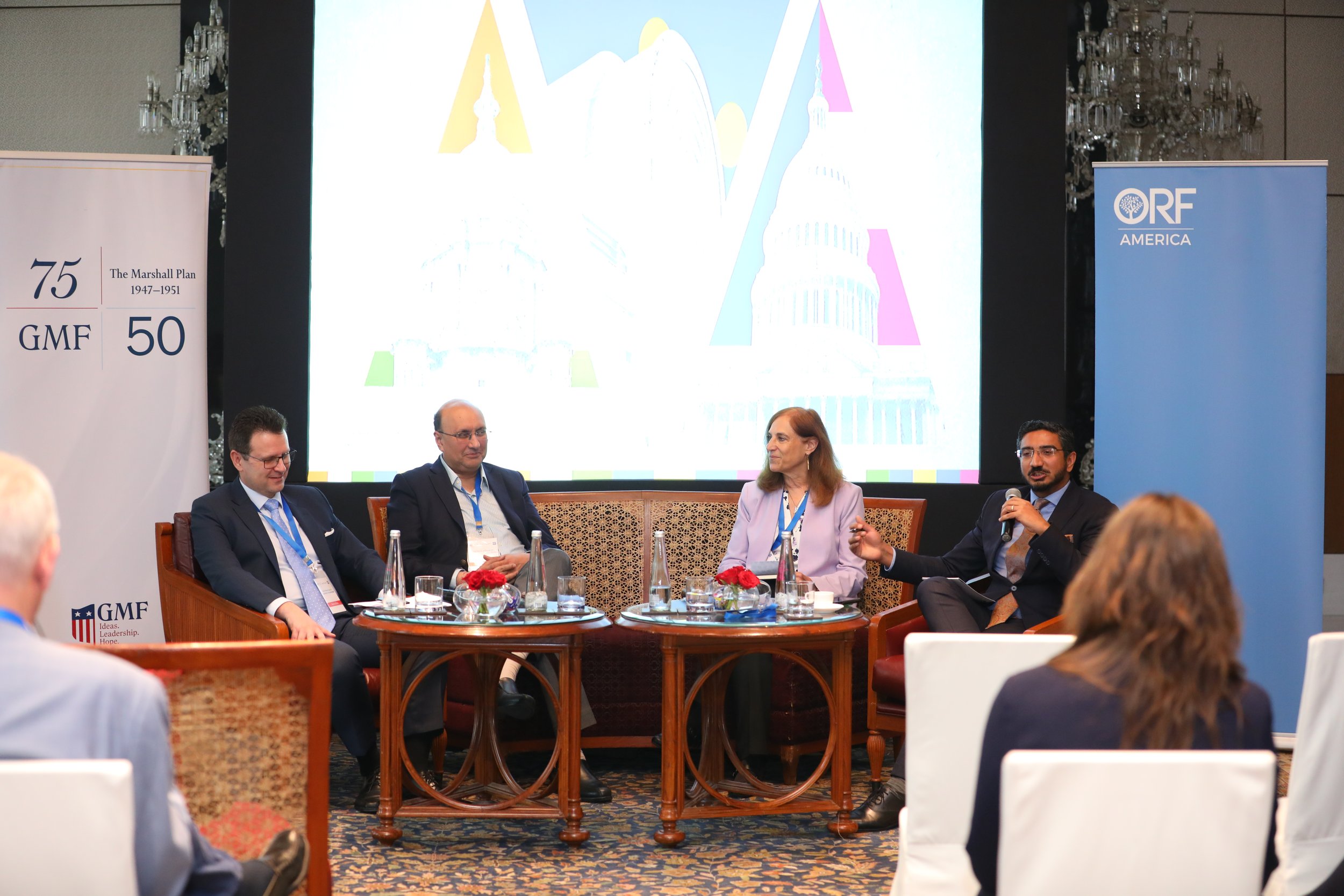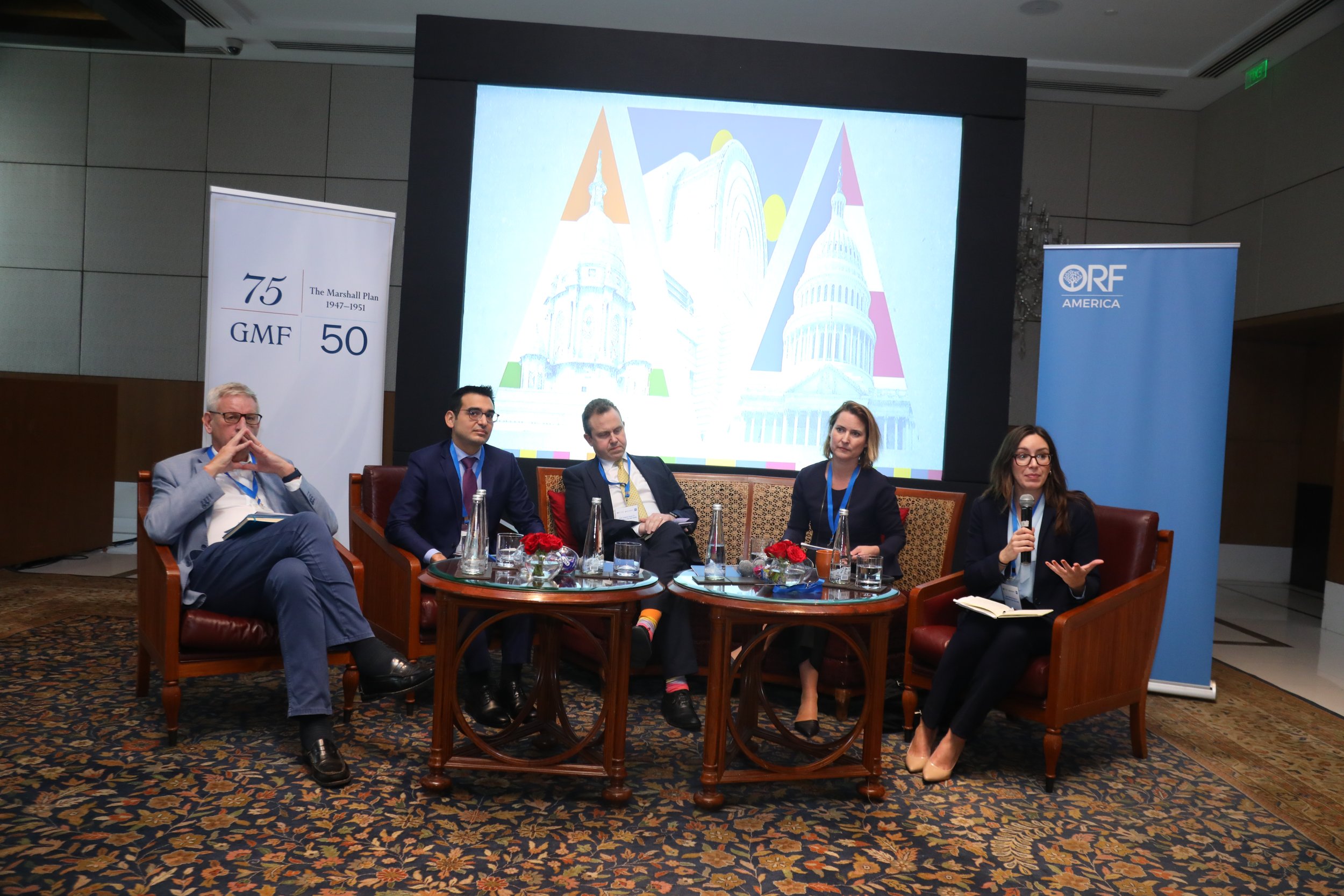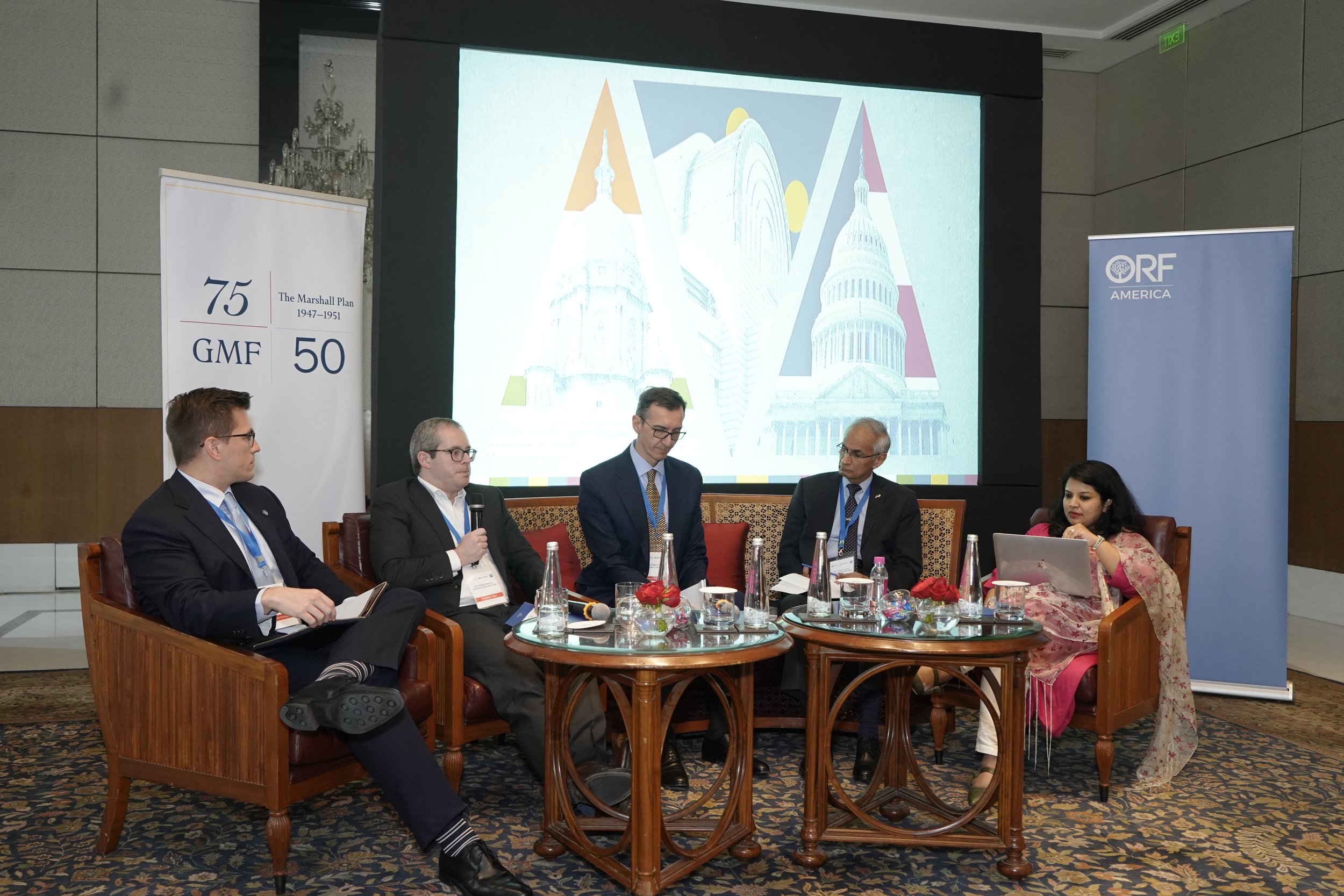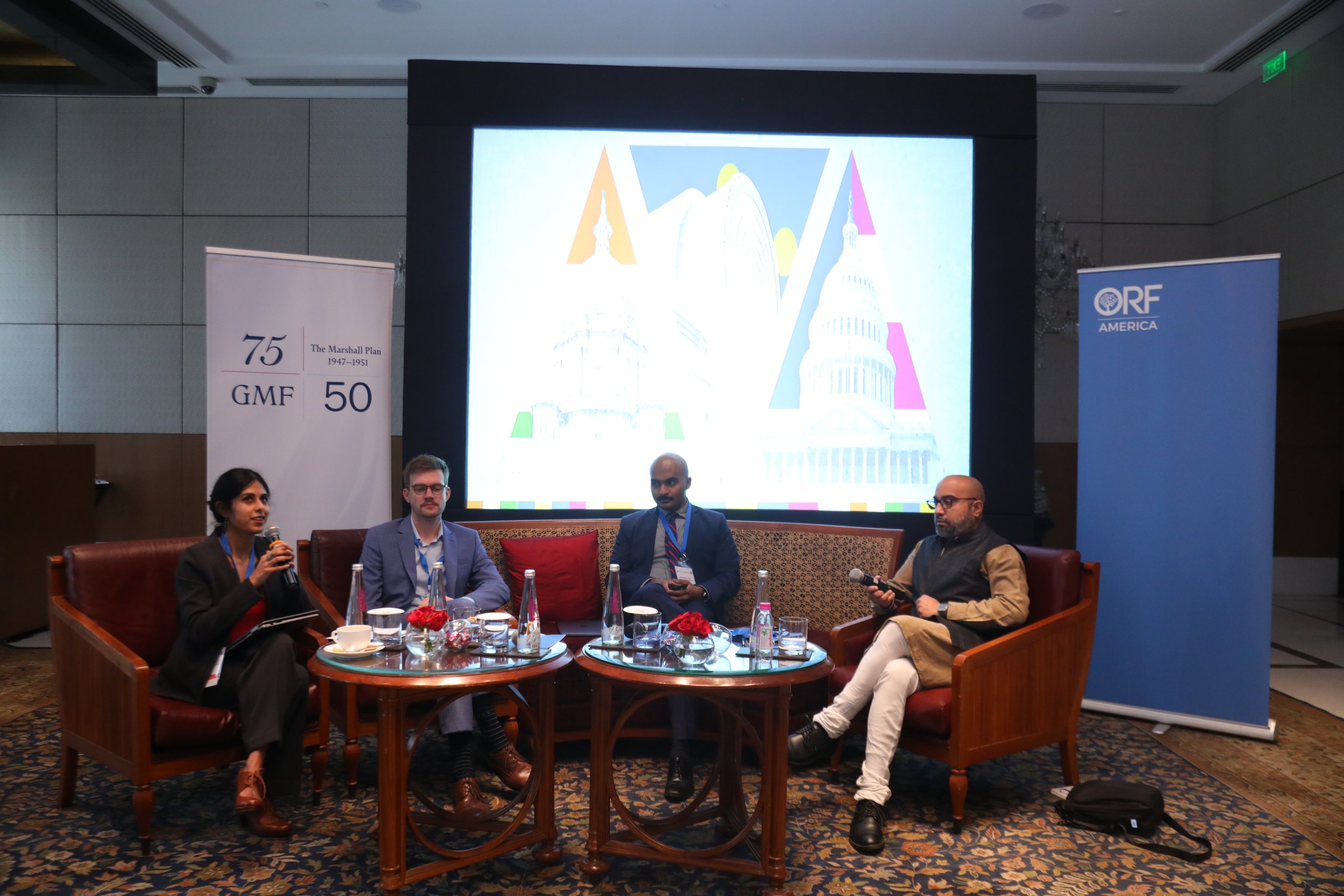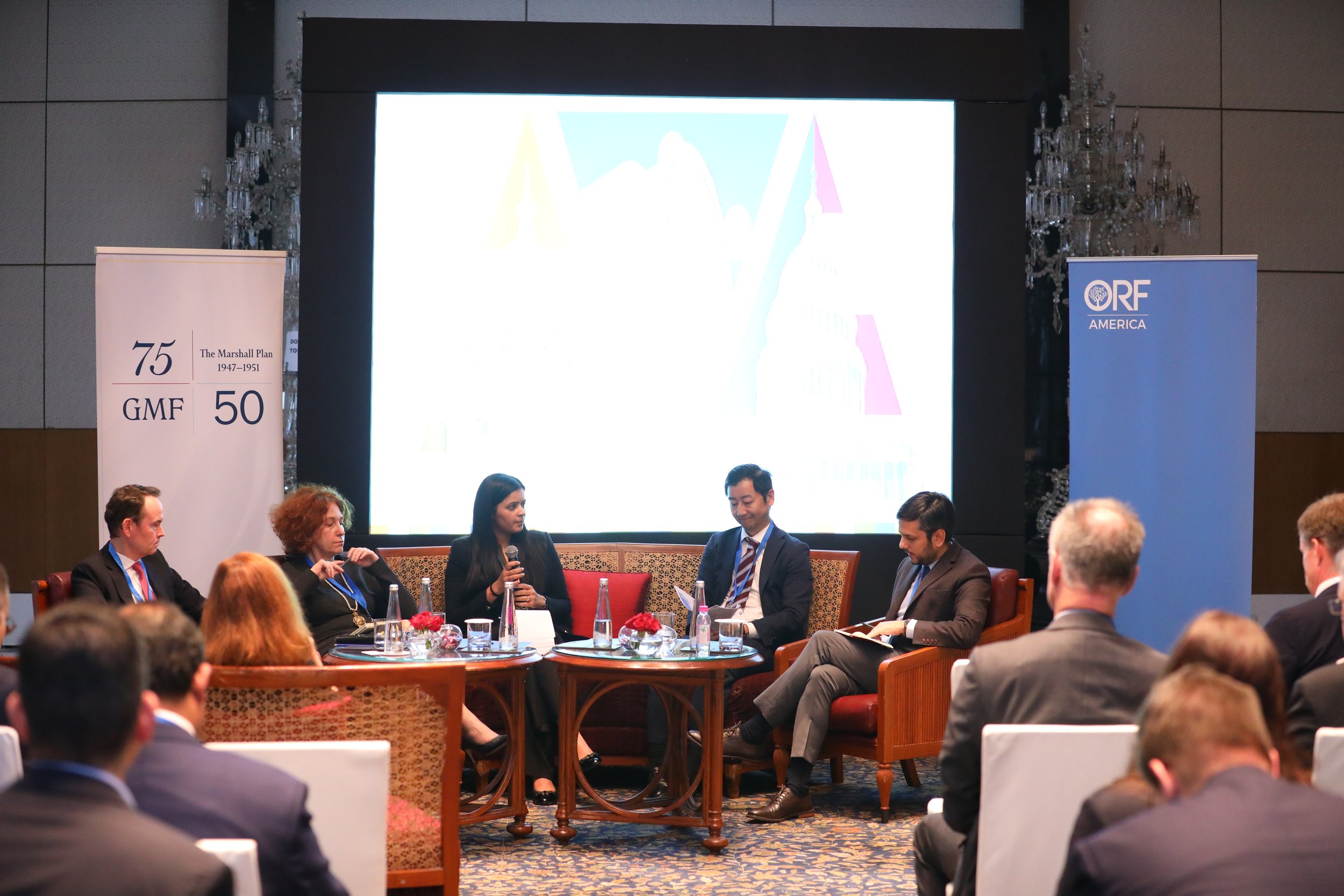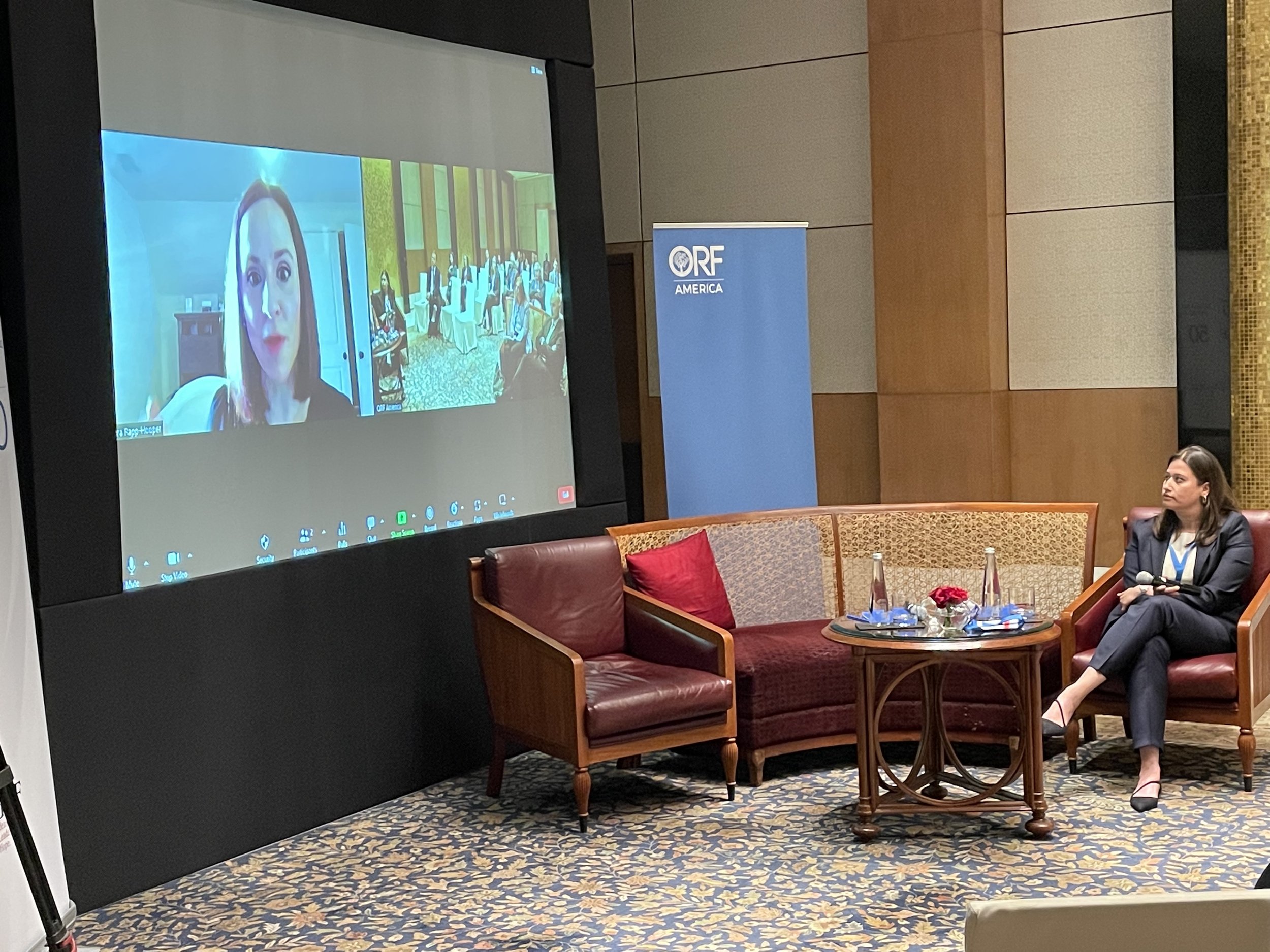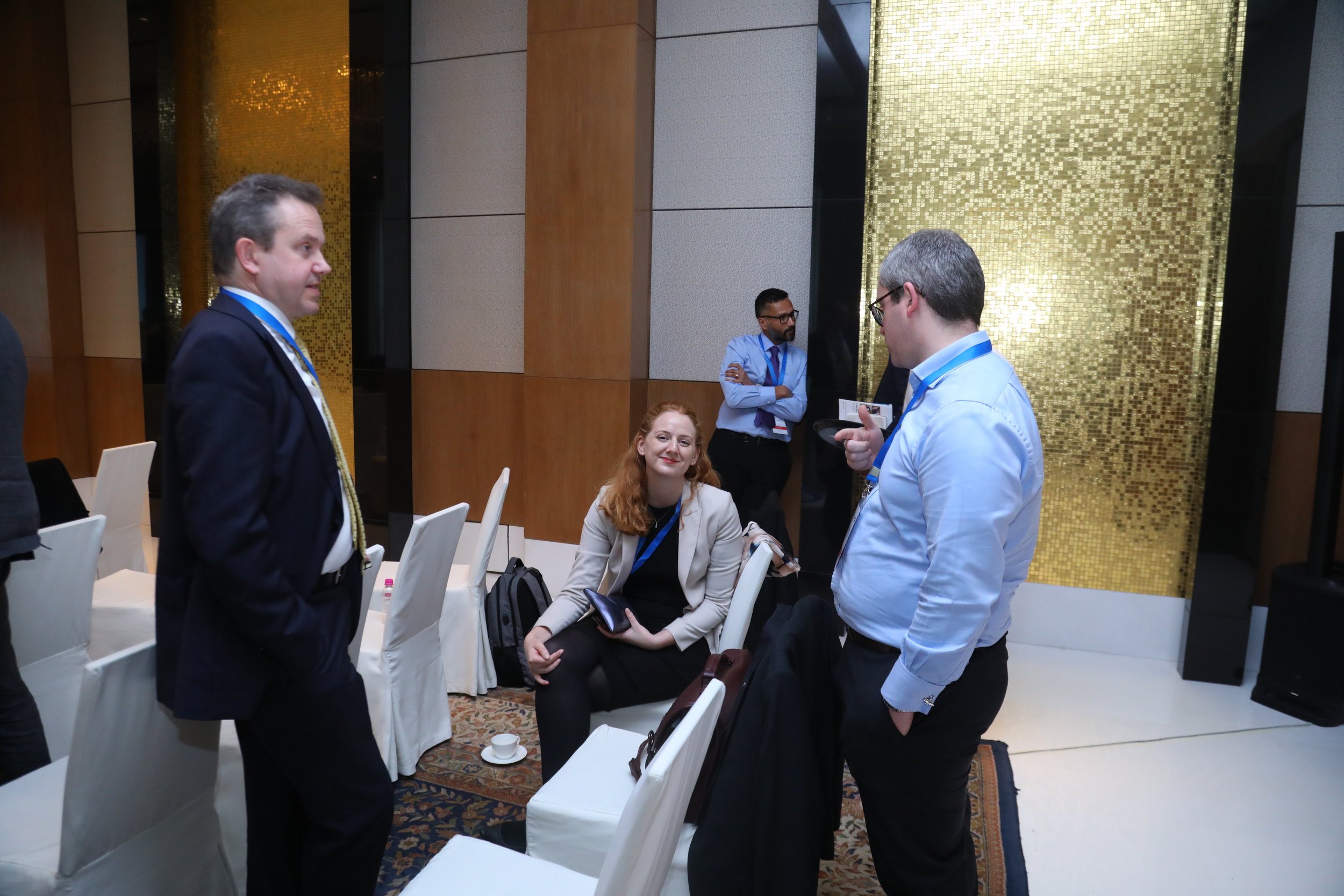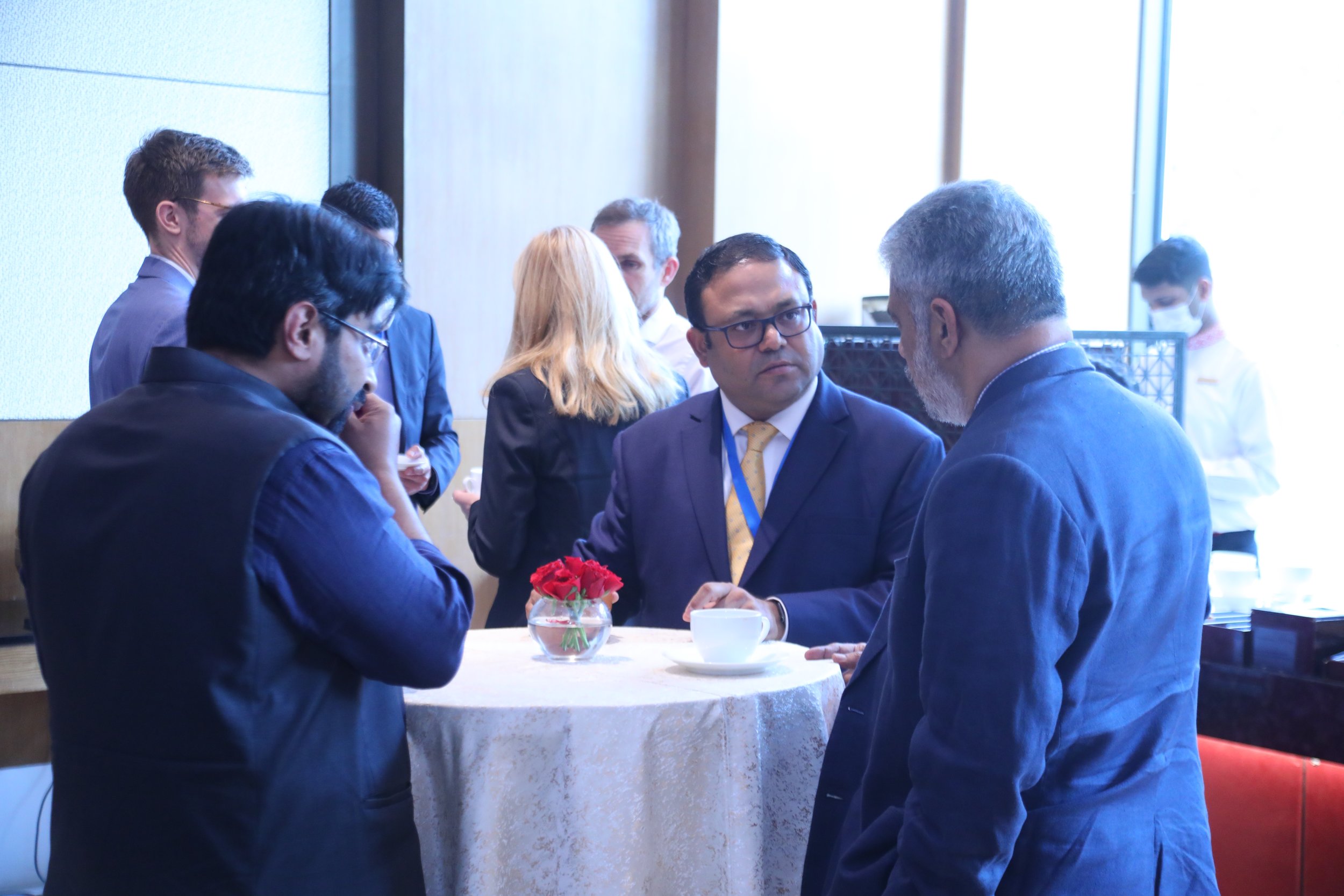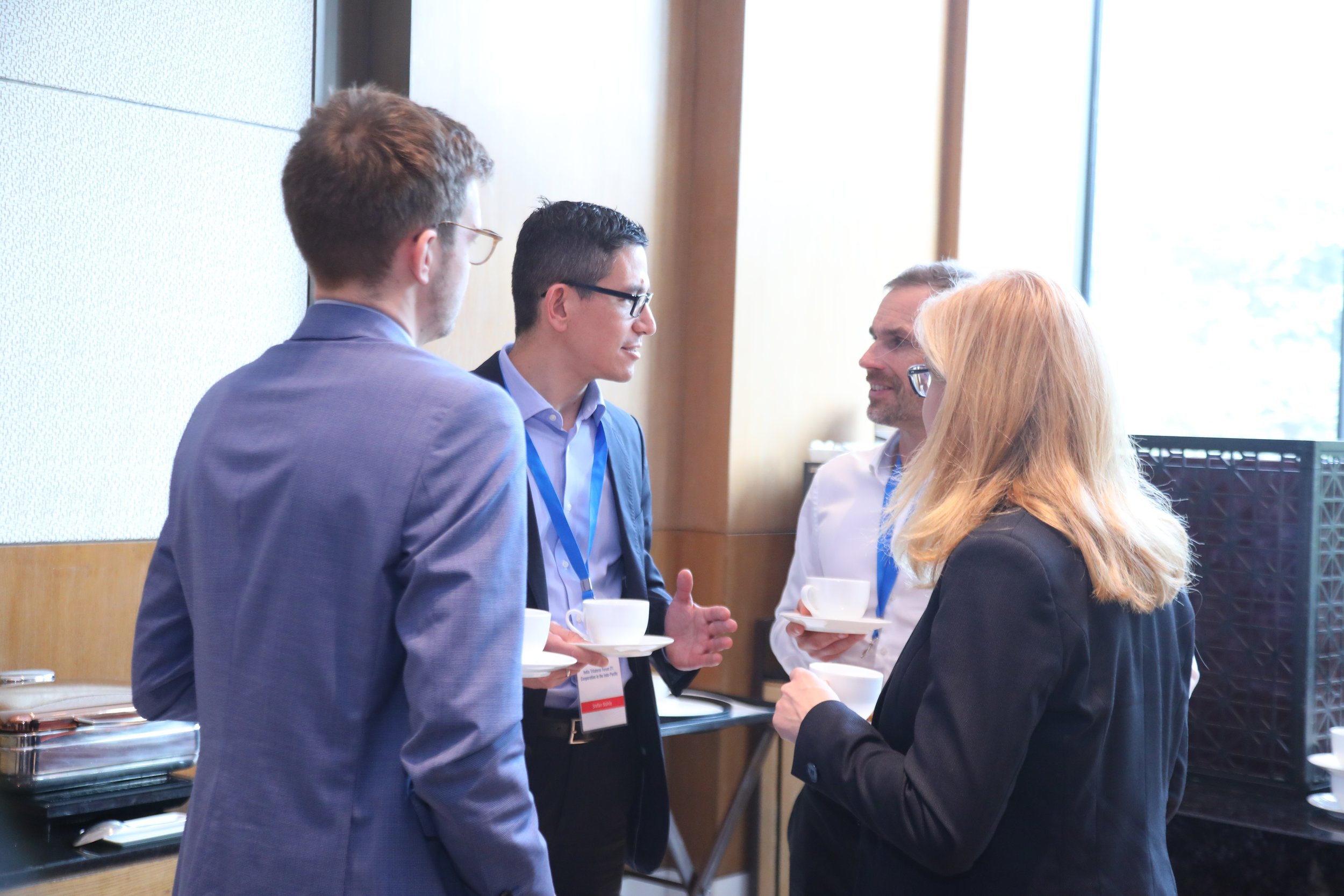Background
ORF America along with the German Marshall Fund and the Sweden Ministry of Foreign Affairs hosted the 21st India Trilateral Forum in New Delhi. Bringing together over 50 participants including government officials and corporate leaders from India, U.S., Sweden, France, UK, Germany, Czech Republic and Denmark to discuss and highlight U.S.-India-EU trilateral cooperation.
Discussion Summary
Coming off of ITF 20 where participants discussed the immediate challenges posed to India, Europe and the U.S. by the Ukraine conflict, ITF 21 was geared towards furthering trilateral cooperation in the Indo-Pacific region between three like-minded democracies. The discussion featured themes such as the Taiwan contingency, maritime security, connectivity, geoeconomics including the Trade and Technology Council (TTC), emerging technologies and the Quad partnership. Participants agreed that partnerships and plurilateral coalitions are key to confronting the immense challenges to the international order.
This was further reinforced by the German Foreign Minister Annalena Baerbock who in her fireside chat argued for the need to buttress the international order and to listen and engage with countries in the Global South. India to that end plays an important role given its goodwill with developing countries and its emerging profile as a preferred security and economic partner in Africa and Southeast Asia. It has also driven the Quad’s evolution as a coalition for delivering regional public goods including the new Indo-Pacific Partnership for Maritime Domain Awareness (IP-MDA). The importance of which was highlighted in another fireside chat with the White House Director for Indo-Pacific Affairs Mira Rapp-Hooper. Participants were acquainted with the Quad’s structure at the leader and the foreign ministry levels too.
Overall, with Russia’s invasion of Ukraine and China amping up its coercion of U.S. allies and partners in the Indo-Pacific region, this “new normal” has only reinforced the importance of trilateral cooperation. Be it for signaling or for shaping narratives or even providing capabilities to like-minded partners. The U.S., EU and India are proactively seeking to shape a favorable balance of power that is conducive to freedom, openness and inclusion in the Indo-Pacific region.
